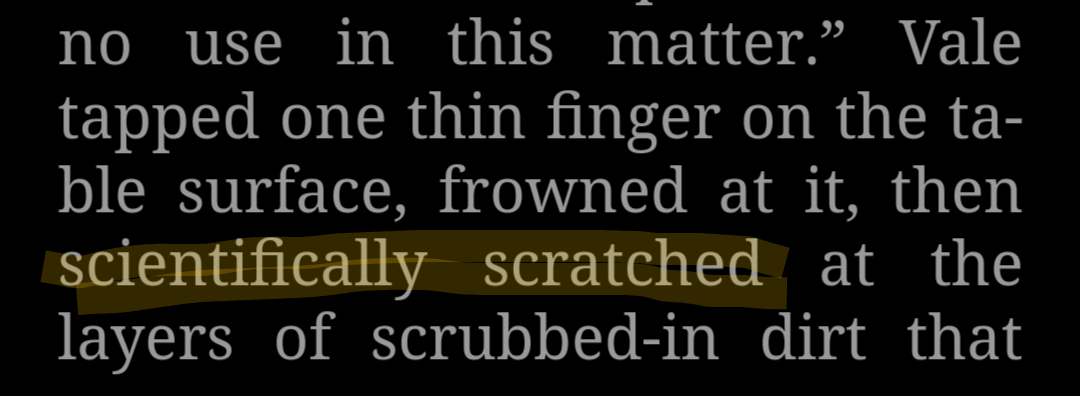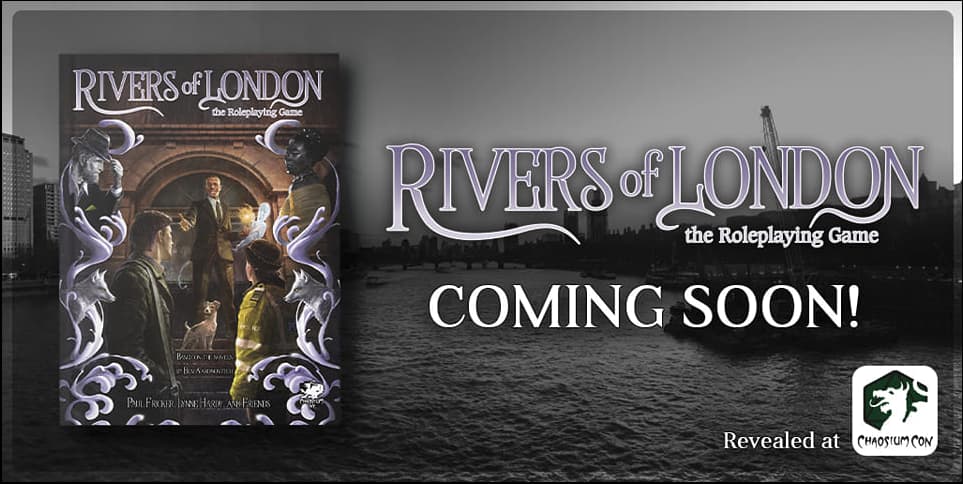
This is some unconscionable adverb abuse, even for mediocre genre fiction.
Memories of Ice by Steven Erikson.
This is the third of ten parts in the “A Tale of the Malazan Book of the Fallen” series. This book could have easily been the end of a trilogy had Erikson wanted it to be. I don’t know if he had planned ten books from the start but things play out in this book that greatly effect the story’s characters. As with the first two books I really liked this one. It is a little slower, speeds up, slows down again and then finishes with a flourish. Erikson creates characters you care about and mechanics that will sometimes confuse you. If I had to make some complaint about these books it would be that the while the magic system Erikson employs is very unique, and well done, it is rather complicated to keep track of and is so much different from other books that you can get kind of over whelmed. But maybe that’s just me.
Haha, no it’s not you. Erikson’s magic system eventually gets so tied up with surrealism and multiple layers that I just started skimming past anything that mentioned the Warrens because I had no idea what the hell.
I read The Buried Giant by Kazuo Ishiguru a week or two ago (it’s a fairly short read) and I’m still thinking about it. It’s both completely different from and strikingly similar to the previous work of his I read, Never Let Me Go. The tone is completely different–it’s a fairly standard 3rd person narrative that jumps around between a couple characters, but the language (of both the narrator, who occasionally drops an unexplained first- or second-person pronoun, and of the characters) is simple, and almost childlike. It took me a bit to get started, because I though the dialogue dragged, but once the plot got going, it grabbed me.
This contrasts with the quite modern (though slighly childlike) first-person narration of Never Let Me Go, though the overall sense of being lost in a world you don’t quite understand is omnipresent in both. They’re also both about people who are fundamentally sympathetic running into other characters who are usually sympathetic, and generally doing their best, but the darkness of the greater world keeps impinging on their lives and really makes the books a pair of emotionally tough reads.
Oh, and while Never Let Me Go is set in contemporary times (with some very slight sci fi, really “speculative fiction”), The Buried Giant is set in a low-fantasy Briton vs Saxon England/Wales. (If you’re at all interested in that kind of setting, I recommend it for that alone.)
The Buried Giant’s main characters are an elderly couple on a journey, and watching their relationship subtly change throughout the book was great. I’m so happy I read it, but man, the last line was both completely surprising and totally expected, and sent me reeling.
I should probably track down The Remains of the Day (apparently his greatest work) but I’m really not sure I’m ready to be disappointed in humanity again.
Did you notice how
Pretty much nothing was revealed about the Buried giant, which gave the story its name?
I must admit, I don’t really understand books like this. I mean, on the surface there is a story, but its much more than what is written clearly, and I just have a hard time parsing what it really means.
Re: the title
I thought it was metaphorical? Which is not obvious given that there is a real dragon, and (apparently) real ogres, etc. The “giant” was both the animosity between the Britons and Saxons, and the relationship history of the couple, and they were “buried” by the forgetting spell that Merlin put on the dragon. I don’t remember exactly how I came to that conclusion, but I thought that maybe somewhere along the line the violence between the Saxons and Britons was referred to as “buried” or something and that’s where I got the idea. Was there an actual giant in the story?
To your broader point, I think there were two main things that I took away from this book (and, more broadly, “books like this”):
-
The unfolding of the central mystery. It’s not some crazily well-crafted twisty-turny scheme with a gotcha and a “now it all makes perfect sense!” moment or anything, but watching the pieces come together to explain how everyone got in the state they’re in was a good ride.
-
I found it to be at the right level of complexity/obscurity (for me) to reflect on human nature and relationships. In this case, how memory changes over time, and how a relationship is impacted by memory, and if we can ever really let go of our memories. Both on the individual level (the old couple) and a societal (the Britons and Saxons). I guess I’d call it, I dunno, high school English class interpretation? I’m no literary genius so I’m sure there’s plenty of stuff I missed, but there was enough there for me to grab on to.
Oh, and a third thing: the language. Both this and Never Let Me Go are very stylistically written (as was At Night All Blood Is Black, which I mentioned above, and all the more impressive because it’s in translation) and I just get joy out of well-constructed sentences; or maybe well-styled sentences is more appropriate.
I finished Alex Marshall’s A Crown for Cold Silver, which is the first book in a grimdark fantasy trilogy. I wasn’t sold on the book for its first few chapters. It seemed like a well-written, but kind of dry military fantasy. But as it evolved I become more and more engaged and the finale hints at a bold new direction for the series. (I’ve already moved on to book 2 and it opens with a bang.)
The cast of characters is all well-drawn: every one of them has a distinct and complex personality. Characters who seem like throwaways at the beginning become fast favorites by the end of the novel. And the author has constructed a nicely diverse collection of cultures based loosely on Earth ones: the Immaculate Isles are pseudo-Korean, Ranaputri is pseudo-Indian, Azgaroth is pseudo-Spanish, etc. Notable in this novel is complete and unremarked gender equality. Both women and men feature in every role from soldier to general to merchant to witch. Sexual orientation is also diverse and unremarked: one of the main characters has two fathers. The central figure of the novel pursues liaisons with both men and women. Also interesting here that most of the main characters are middle-aged: vigorous, but past their prime (like me!)
The book is just packed with detail that makes the world feel both distinct and familiar enough to get the context: from tea (or maybe coffee) drinking to pipe smoking to storytelling. The magic in the novel is my favorite kind: capricious, uncontrollable, horribly powerful, only hazily understood. There’s an evil but popular religious order. And some cool weird shit and monsters.
There are obvious parallels in this novel to Abercrombie’s First Law series, and I think anyone who enjoyed that would definitely enjoy this as well. Recommended for fans of violent fantasy. (Content note if you care: lots of bloody gory violence, copious use of the word fuck, lots of behind the scenes fucking, no sexual violence and very little explicit sexual content.) I listened to the audiobook read by British narrator Angele Masters and she was great, though I kind of wish she’d given the Flintlanders a West Indies accent rather than the Monty Python peasant accents she gives them.
Pulled a Qt3 last night blowing through the new Rivers of London book, Among Our Weapons.
I love this series, and this I thought was stronger than the last one (False Value). Great mix of characters old and new, similarly excellent Peter Grant shenanigans.
One thing I really appreciate about the whole series is the sense of movement for the characters throughout. And not just in the Butcher-ian sense of leveling up (though Peter certainly does that), but in growing emotionally and having their priorities change and grow with them. As a young man myself not so long ago (I swear!), Peter’s journey in particular rings very true.
The other thing Aaronovitch remains strong at, which I love, is maintaining a sense of wonder and mystery by pulling back the curtain just enough for us to catch a glimpse of the monsters at the edge of the map, to mix a metaphor or three. Aaronovitch does not suffer any delusions that he’s writing an RPG sourcebook and lets e.g. magic for the most part be magic.
Anyway. Ten clever nonlethal magical takedowns out of ten. Highly recommended.
Sounds like a great series, let me add the first to my list. [Googles “Among Our Weapons”, sees that it’s book nine…]
Is this the kind of series that’s going to make me angry if the author dies before finishing? Or are they more standalone?
Very much more standalone. There are elements that carry through, obviously, but each book is very much a complete story on its own.
Great! Recommendations for which one to start at?
No reason to start anywhere but the first. First one might be my favorite overall anyway – not an indictment of the rest of the series, but that first book is awesome.
Thanks! For the record, that appears to be the eponymous Rivers of London (2015).
Published in the US as Midnight Riot for some reason. The only one of the series that has a different title between US and UK.
As with so many things, Amazon has samples via “Look Inside.” Thanks for the recommendation @inactive_user, these look like something I and my wife would probably both enjoy.
I believe they’re all enabled for “family sharing” – my wife has been enjoying them after I bought them with no issues.
About that…

Magic has returned to our world.
The London Metropolitan Police Service’s special magic branch take to the streets to come to grips with the “demi-monde”—those who have been irreversibly changed by magic.
Welcome to Rivers of London. Based on the novels by Ben Aaronovitch. Coming soon!
:)
Aaronovitch was really keen on the project. That said, he doesn’t want to give away all the secrets of his magic system in the sourcebooks. So he’s worked with Chaosium to create a system that’s approachable and keeps some of the mystery.
And the Rivers of London series is an awesome recommendation. If you hadn’t heard of it, where have you been? And get to it!
Also, the audio books narrated by Kobna Holdbrook-Smith are fantastic. He really brings the characters to life.
I’d be all over this except for the reference to Butcher. I bought 10 books in that series or something before I started reading the first one. That’s when I discovered it was the most uninterested I’ve ever been in a book, and only got about halfway through it. I had bought 9.5 books too many! A good lesson to always read the first book before buying a bunch of discount books in a series.
Hah! Naturally.
All over what? Rivers of London? I’d say give the first book a try. It’s a great modern day adventure which mixes police procedural and magic. It’s not a Dresden Files clone.